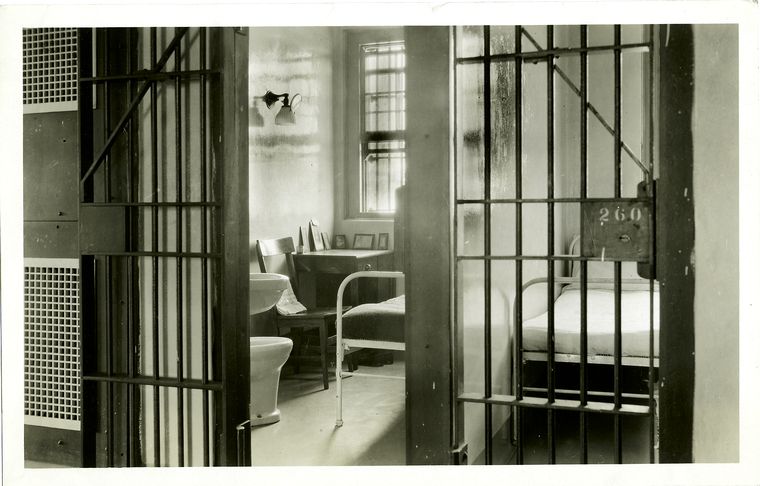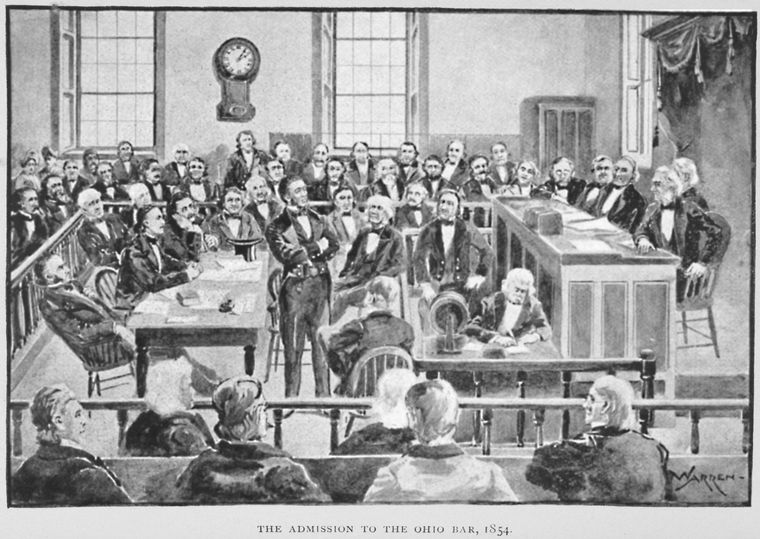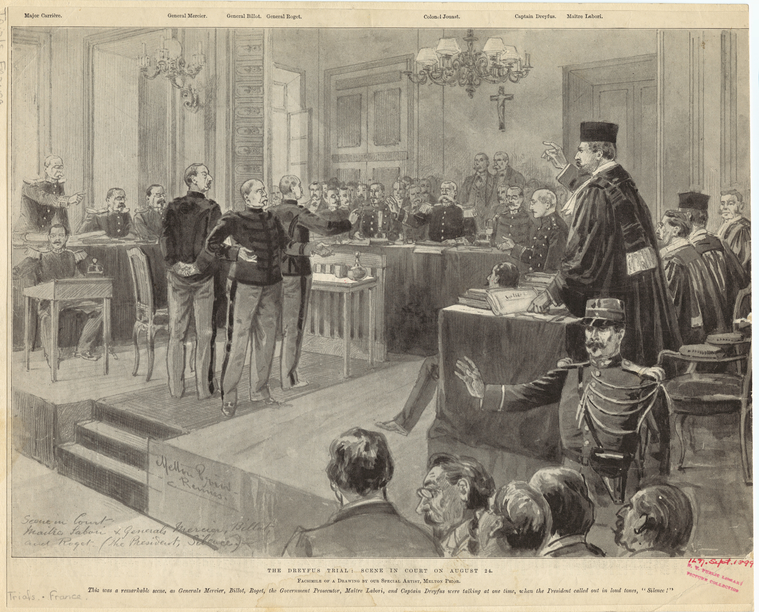The Trials and Tribulations of Grand Jury Service
![[Judge Presiding Over A Court, France, 15th Century.], Digital ID 834256, New York Public Library [Judge Presiding Over A Court, France, 15th Century.], Digital ID 834256, New York Public Library](https://images.nypl.org/?id=834256&t=w)
Jury Selection: I hear that about 300 people are summoned for jury selection, which occurs in a large room. About 150 people showed up. The process takes a few hours. We waited an hour for everyone to show up. Then the court officers explained the selection procedures. They randomly called people's names and asked them which panel they would like to be on (the panels all started and ended on different dates). If potential jurors wanted to speak to the judge about hardship, they were allowed to do so. The forepeople and assistant forepeople are selected and sworn in by the judge. At about 12 noon or 1 p.m., we were dismissed for the day and told to keep our juror card and arrive on the designated start date for our panel.

The Purpose of a Grand Jury: In order to bring felony charges against someone in New York State, the Assistant District Attorney (ADA) must first present the evidence to a grand jury and get an indictment. The grand jury does not decide guilt or not guilt, as the trial jury does. The grand jury decides whether there is sufficient evidence to bring charges against someone, or indict someone with criminal charges. It is supposed to protect citizens from facing charges for which there is insufficient evidence. The grand jury can make the following responses to the evidence that the prosecutor presents:
- Indictment — the defendant goes on trial and the trial jury will decide guilt or not guilt on the charges that are presented;
- Dismissal of the charges due to lack of evidence or the prosecution did not prove its case;
- Press additional charges against the defendant, other than felony charges;
- Undecided — the jury informs the ADA that a decision of 12 jurors could not be reached for indictment or dismissal of charges.
The jury can also request that the prosecution ask the witnesses specific questions after the ADA has finished his or her questions.
There are 23 people on the grand jury panel. Sixteen must be present to vote (a quorum). Twelve grand jurors must vote for a decision to make it valid. This is very different from the unanimous decision that trial juries must come up with or a mistrial is declared, causing the defendant to go on trial again if a plea bargain is not reached and if the charges are not dropped. Not so with grand juries. Also, I was not asked any questions when selected for the grand jury, other than if I was at least 18 years old, a resident of Bronx County, and not convicted of a felony, as opposed to the trial jury, where many questions are asked of prospective jurors. The court system seems to be much less picky about who serves on a grand jury. I didn't think I had a chance to ever serve on a jury due to my internships in jails and my master's degree in forensic psychology.
 Sequence of Events for Our 16 Days of Jury Service: In the Bronx, jurors are on a grand jury panel for four days a week for four weeks, after the initial selection day. The first day consisted of an orientation to grand jury service, including housekeeping items such as notification if the jury is to be late, procedures for the day, such as the fact that we may need to stay after 5 p.m. if a case is being presented, and the fact that the court officers are our point of contact for any questions we might have about record keeping, etc. The Assistant District Attorneys were our legal advisors, and we could ask any questions pertaining to the law to them. The jurors watched an exciting video about grand jury service, and the secretaries, assistant foreperson, and foreperson received additional training about record keeping and administering the voting procedures for the charges. The secretaries keep records in a book that the court officers consult, and another secretary records the cases on a sheet of paper that the jury coordinators keep track of. During our first week of service, one of the supervisors came in to speak with us about the procedures. She said that the first week we hear a lot of presentations and do not do much voting, and during the last week we will wrap up cases and do a lot of voting. She said that the court tries not to extend jury service, but if necessary, the jury service would only be extended for a day or two. Also, the judge tries not to keep the panels past 5 p.m., if possible.
Sequence of Events for Our 16 Days of Jury Service: In the Bronx, jurors are on a grand jury panel for four days a week for four weeks, after the initial selection day. The first day consisted of an orientation to grand jury service, including housekeeping items such as notification if the jury is to be late, procedures for the day, such as the fact that we may need to stay after 5 p.m. if a case is being presented, and the fact that the court officers are our point of contact for any questions we might have about record keeping, etc. The Assistant District Attorneys were our legal advisors, and we could ask any questions pertaining to the law to them. The jurors watched an exciting video about grand jury service, and the secretaries, assistant foreperson, and foreperson received additional training about record keeping and administering the voting procedures for the charges. The secretaries keep records in a book that the court officers consult, and another secretary records the cases on a sheet of paper that the jury coordinators keep track of. During our first week of service, one of the supervisors came in to speak with us about the procedures. She said that the first week we hear a lot of presentations and do not do much voting, and during the last week we will wrap up cases and do a lot of voting. She said that the court tries not to extend jury service, but if necessary, the jury service would only be extended for a day or two. Also, the judge tries not to keep the panels past 5 p.m., if possible.
Cases and Evidence Presented: We saw a variety of cases, including murder, rape, burglary, etc. The cases were presented by a number of different Assistant District Attorneys. The ADA presents the case, which usually involves calling witnesses to testify, including the victim of the crime and police and corrections officers. The ADA also presents exhibits, which include photographs of the crime scene and/or victim injuries, lab reports specifying what type of substance (ie, narcotics, were found), arrest receipts, etc., which the jury can look at, and the witness or attorney often reads to the jury. Often, the ADA will come back on subsequent days to present additional evidence. However, in some cases, all of the evidence is presented in one day, and the jury panel can vote after the evidence is presented.
Voting for Indictment or Dismissal of Charges: I was in a total of three different jury panels, since on a couple of occasions, the other panels were missing a quorum (you need 16 jurors present to hear evidence or vote on a case), so I acted as a substitute juror. The voting process is done slightly differently in each panel. First, the attorney reads the charges to be considered, then reads the penal law on each charge so that the jurors can apply the law to the particular case. Then the attorney and stenographer leave the room for the jurors to deliberate. The jurors decide whether to vote all charges simultaneously or separately, depending on whether the jurors think the defendant can be indicted on all, none, or some of the charges. The foreperson then asks for a show of hands on who wants to indict, dismiss, or deliberate (if 12 jurors do not raise their hands for indictment or dismissal of the charges). When a decision is reached to indict, dismiss, or a decision cannot be made, the foreperson can inform the Assistant District Attorney what the outcome is.
Unlike trial juries, the grand jury is more of a fact-finding, non-adversarial process. The ADA has to be careful to ask only legal questions. No questions regarding hearsay, etc., may be asked. A stenographer (court reporter) types the proceedings, which are later reviewed by a judge. Defense counsel can file motions regarding the grand jury proceedings. If a defendant testifies on his or her own behalf, after waiving his or her Miranda rights, he or she is accompanied to the grand jury and during his or her testimony by the attorney, who must remain silent during the proceedings. The defendant, however, can consult with his or her attorney during the questioning. Testimony is presented, and often continued with more witnesses or evidence on subsequent days. The ADA may drop charges during the grand jury proceedings, and may add charges after the grand jury proceeding. After grand jury proceedings, the charges can be dropped, a plea bargain can be reached, or the case can go to trial. If the grand jury is undecided (cannot find 12 jurors to vote for indictment or dismissal), they must inform the ADA, who may present the case to another grand jury.


How the Members of the Grand Jury Killed Time: The assistant foreperson has the job of documenting how we spend our time in the jury room. Now, I know this is the grist of many jokes — how much time we spend simply waiting, sleeping, reading books, or debating politics. Every so often the assistant foreperson would inform us of how much time we had spent waiting that day, sometimes around 160 minutes or so, and I was highly suspicious that this was only since lunchtime. People found creative things to do: buy joint lotto tickets to make us a rich jury, eat snacks, listen to music, put on our own courtroom dramas, read, etc. Grand jury service definitely taught me how to be patient and learn to wait. The jurors also planned a party for the last day of jury duty, including food and drink. And honestly, I tried to use the time in a somewhat productive manner. I was reading A Tyranny of Documents from volumne 28 of the Performing Arts Resources series produced by the Theatre Library Association, which works with The New York Public Library for the Performing Arts. I read Walter Dean Myers (for some reason, I'm on a Walter Dean Myers kick and read nothing else in teen fiction at the moment), and wrote a booktalk on Lockdown (a very timely and appropriate book for me to read during jury duty), about a 15-year-old kid in juvy (juvenile) corrections facility called Progress. I am continuing to read more of his books and write related booktalks, which I can then turn into blog posts, etc. The members of the grand jury also discussed politics while waiting, including who Americans blame for the recession, which presidential adminstrations are similar, the role of the news media in public opinion, taxation, the gap between the rich and the poor, and foreign affairs. This all added to the drama of the grand jury experience. This occurred especially during the Rosh Hashana holiday, the Jewish New Year when jurors were required to work, but the days seemed slow due to less staff in the Court House.
My Secretarial (and Librarian) Duties on the Grand Jury: The jury secretary takes attendance and fills out a record-keeping book of all the cases seen per day and the decisions (indictments and dismissals) for the grand jury coordinators. Interestingly enough, I was in charge of "the Book," which recorded which cases we heard on which days, which witnesses testified, and which charges were indicted or dismissed. There was indexing (cross-referencing) involved if a case was seen on multiple days, which was the norm. I was doing a librarian task; I got to temporarily be an indexer! Two secretaries are chosen for two different types of paperwork, and there is an alternate secretary in case either one of the secretaries is absent.
The other members of the grand jury need to be in attendance to hear all of the evidence and vote for indictment and dismissal. If many of the jurors are absent, it is harder to reach the 12 votes needed for indictment or dismissal and the jury may be undecided, and the prosecution consequently may bring the case before another grand jury.
An Informative and Educational Experience!: I am so glad that I got to experience jury service in the Bronx. Not only did it give me a break from my regular routine, it gave me a perspective on the criminal justice system in the United States that I simply did not have before. I was actually a participant in the legal system in this country, and I did not have to go to law school! How great is that. I now watch the many true crime television shows that I had watched before jury service, but with a newfound perspective. In one case, a defendant was convicted of murder, though I was not even sure that a crime had been committed — I was not certain that the woman was dead, due to lack of a body or sufficient blood evidence to prove that a person could not reasonably have survived such a loss. I wondered how a grand jury could have indicted the defendant on murder charges, let alone convicted him! I pictured myself in a grand jury room listening to the evidence that was presented in the show about the trial (which is much more evidence than is presented to the grand jury), and I would not have voted to indict! It was a fascinating experience, especially since I am so interested in the law, psychology, and criminal behavior. Interestingly, after two weeks of jury service, I found myself visiting my local library every day after jury service because I was having library withdrawal symptoms. I guess I'm in the right profession!
Internet Resources About Jury Service
- United States Courts: Jury Service
- New York State Unified Court System: Juror Information
- Books about the Grand Jury in the NYPL Catalog
Have you served on a jury or grand jury, what was your experience like?
Read E-Books with SimplyE
 With your library card, it's easier than ever to choose from more than 300,000 e-books on SimplyE, The New York Public Library's free e-reader app. Gain access to digital resources for all ages, including e-books, audiobooks, databases, and more.
With your library card, it's easier than ever to choose from more than 300,000 e-books on SimplyE, The New York Public Library's free e-reader app. Gain access to digital resources for all ages, including e-books, audiobooks, databases, and more.
If you don’t have an NYPL library card, New York State residents can apply for a digital card online or through SimplyE (available on the App Store or Google Play).
Need more help? Read our guide to using SimplyE.


Comments
I served on a criminal jury
Submitted by Anonymous (not verified) on November 7, 2011 - 11:51am
Wow!
Submitted by Brendan (not verified) on December 5, 2011 - 2:25pm
Thanks!
Submitted by Anonymous (not verified) on August 18, 2012 - 10:04am
Grand juries and ham sandwiches
Submitted by John (not verified) on December 21, 2012 - 3:34am
i got called and i am so
Submitted by Anonymous (not verified) on October 30, 2013 - 1:40pm
Number of jurors
Submitted by Tony (not verified) on November 8, 2015 - 6:17pm